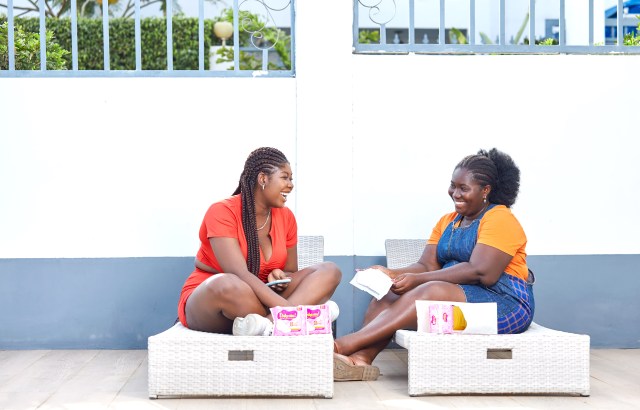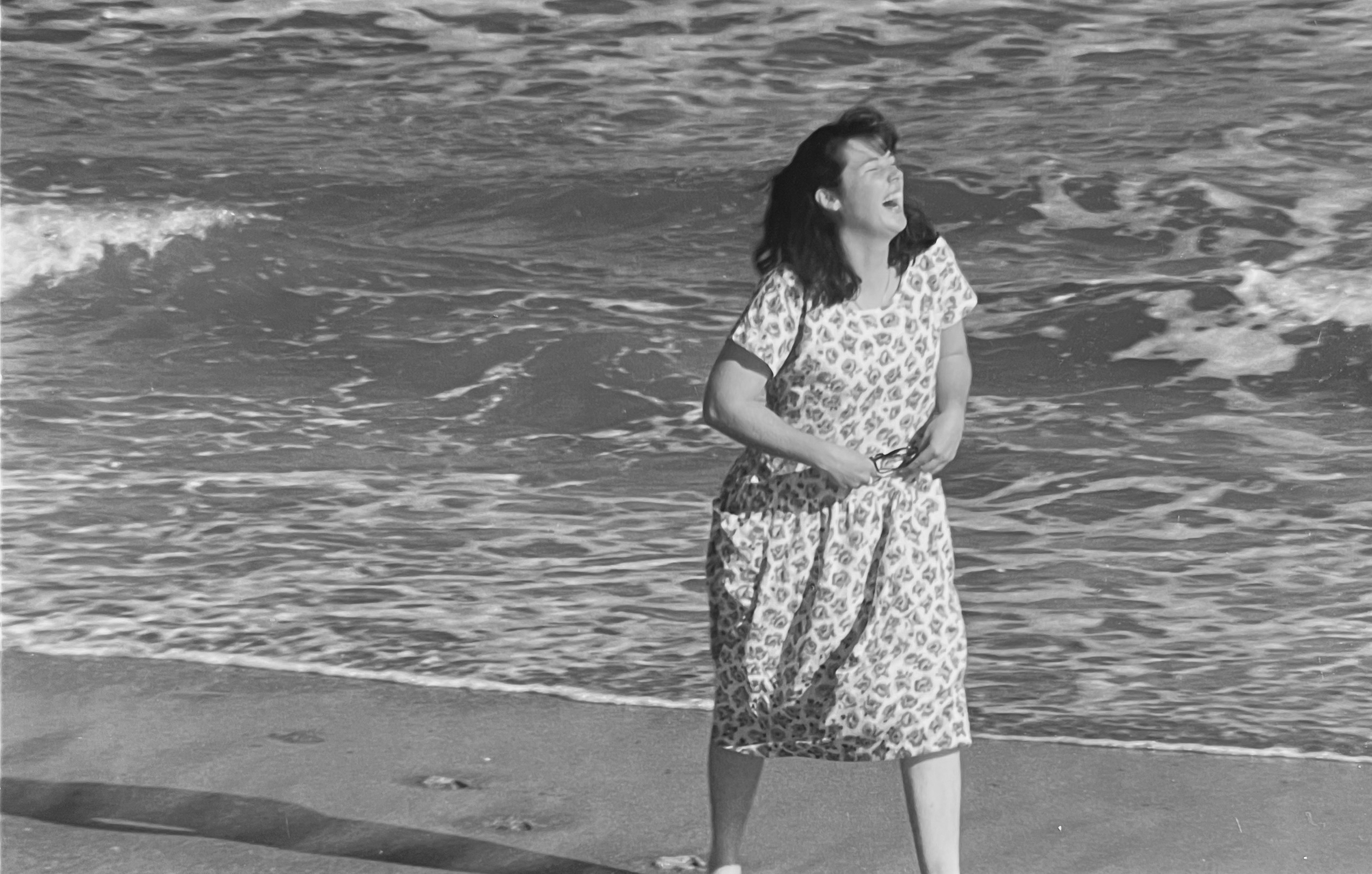
Stigma and taboo associated with menstruation is a global phenomenon. Period poverty is a term used to describe the lack of access to menstrual hygiene products, such as pads and tampons, due to financial constraints. This lack of access can have significant negative effects on primarily young girls, including missed school days, reduced participation in daily activities, and potential health problems.
In Ghana, like numerous countries around the world, menstrual products are taxed in a way that classifies them as “luxury” items, instead of essential. The commonly known “tampon tax” has become a discussion starting point for a number of movements to raise awareness about menstrual stigma and period poverty.
A new menstrual hygiene brand based out of Ghana called Ohhema has been working to serve rural communities and change the narrative of period shaming, by empowering women to have control over their menstrual health. Created by a Ghanaian woman, Ohhema has donated over 3,000 pads to women in need, and they plan to continue this mission as they have now launched in the United States on Amazon. Period poverty is a big issue not just across Africa, but also in the U.S. A recent study claims that 42% of women are struggling to afford period products in the U.S.
Gifty Ann Nkrumah is a midwife and spokesperson for Ohhema, and has worked in the healthcare/women’s health industry for 15 years. Currently, she works at Achiaman Health Centre in Ghana as a midwifery officer and head of the maternity unit. She supervises all the daily activities at the antenatal and postnatal clinics, supervising deliveries at the clinic.
We wanted to learn more about her work in the reproductive and sexual health space, and had the chance to ask Gifty to dispel some common myths around menstruation, share what she hopes Ohhema’s impact will be in the U.S, and explain the long-term benefits for empowering women with knowledge about their bodies in a landscape where it is taboo.

Can you tell us about your background as a midwife and what made you choose this career?
During high school days, there were three careers I wanted to pursue when I completed: Nursing, Journalism and Law. So applying and gaining admission to the Nursing and Midwifery Training College at Korle-Bu to study Midwifery was a dream come true. I gained admission in 2007 and completed with a Diploma in Midwifery in 2010.
My first place of work was Lekma Hospital, Teshie in Accra the capital of Ghana, where l worked for ten (10) years before taking a transfer to my current health facility called Achiaman Health Centre, Achiaman. I am currently the Head of the Maternity Unit.
The joy of being the first to actually care for and see new lives being born into this world has constantly made me work harder to help in any way I could for these mothers to be well throughout their pregnancies.
Menstrual health is still a taboo all over the world in many cultures. What is it like for Ghanaian women right now?
For centuries, most cultures around the world had negated menstruation to the background, making it a taboo for women. Some even go to the extent of building unsafe shelters for women to live in once they experience their periods, and forbid them from entering some places considered sacred. Ghana was not an exception to these practices. Some religions would not allow women to worship with the rest during those times of the month, as they were seen as “unclean”.
In recent times, through human rights advocacy campaigns, public health education, women groups organizations and also menstrual hygiene celebrations across the globe, much awareness is being created. The women in Ghana are now more enlightened about the practices and essential health habits to incorporate in their lives during these times of the month.
Women are now speaking up about the ordeals they suffer during their menstrual periods and are seeking for help where needed. We are not completely free of the stigma yet, but we are far ahead with the rest of the world for a global change of attitude towards menstrual health.
What are some of the biggest period myths or misinformation you are constantly having to correct among the patients you see?
First myth is girl being impure during their periods so should not be allowed to cook for the family or touch food.
The second one is keeping sanitary products so private that they should be wrapped in paper so no one can see.
Third, girls shouldn’t discuss their periods in public so it is shameful to do so. Also, a girl cannot get pregnant if she has sexual intercourse during her period.
The last is when one does not experience her period in a particular month. The blood would gather and turn into fibroids in her uterus.

The idea of women’s sexual health is seen as less important or in some cases controversial. In your line of work, can you share more about the detrimental effect of not prioritizing women’s reproductive and sexual health?
One of the most common effect of not given enough attention women’s reproductive and sexual health is that there are always delays in diagnosing reproductive health conditions. And once this happens, the prognosis is bad for the woman. The delay in receiving assistance is as a direct result of little to no information on women’s health in general.
Some women having issues with achieving successful pregnancies lack the proper knowledge on how fertilization happens, and many do not even know that men are also an issue when it comes to getting pregnant. Culturally, women are blamed or take the blame when a couple is not able to conceive.
Women with uterine fibroids are made to believe the fibroids are a result of some periods of amenorrhea. They delay getting the care they need, and often once they do, it is because they need help after the negative impact of concoctions given to them by quack home practitioners, who in this era of social media influence are all over the internet advertising all sorts of drugs and herbs that have no necessarily been proven to work.
What are the benefits you have seen among your patients and the community?
Women are openly discussing issues that were previously hidden. Young girls are being brave about reproductive issues, and mothers are now equipped with the right information to be there for their girls without necessarily having outside influences.
Discussions are being held about maternity leave for women after childbirth, looking at extending the period to allow mothers to have more time with their newborns at home. Innovative sanitary products are now more accessible for young girls to use and also experiment with.
Women with reproductive health conditions are more open to receiving solutions from the appropriate health care providers, with other women serving as mentors to others who have fear in seeking help and the aftermath of care.
We are not there yet with complete access but it is a start and the future looks bright.

Ohhema is more than just a brand offering period products, they are also working to educate customers on the importance of women’s health, eradicating period poverty. Can you tell us about your involvement with Ohhema and the difference they are making?
I got involved with Ohhema this year with the sole purpose of being the healthcare provider to answer, discuss and educate women and the general public issues on women’s reproductive and sexual health. I also wanted to engage young girls in schools and colleges on issues with their periods and as well as general feminine health as a whole. My job as a midwife and girls’ advocate on reproductive issues makes this collaboration very easy and affords me the platform to reach more young girls and women across the country and the globe.
The public engagement on these issues by Ohhema has been overwhelming and the prices for their sanitary product truly speaks about their aim of eradicating period poverty. I am really pleased to be on board such a project.
As Ohhema is launching in the US, what kind of impact do you hope it will have here?
Ohhema is going to have a great impact in the US. The landscape there favors campaigns and brands like Ohhema, who want to make lives of young girls and women easier through education, discussions and getting them involved in their reproductive and sexual health. The affordable products will help solve the global issue of period poverty and raise awareness among policy makers on the effects of not prioritizing women’s health.
How important is it to include men in the messages around eradicating period poverty?
Issues about periods are for everyone. Men or fathers, when well-equipped and involved with the right tools of information, make great impact across the world. They protect their young girls and therefore will readily help in projects that makes them part of the decision-makers. They will have empathy for women during those difficult times of the month and that alone will go a long way to let women voice out their pain and difficulty during their periods, and not be ashamed or scared of being called weak or stigmatized.
What changes do you hope to see in the world when it comes to menstruation and women’s health?
I look forward to a time when issues and myths surrounding menstruation will just be history studied in school. I hope for a time when sanitary products being used during menstruation are free across the world, since women do not have a choice about whether to menstruate or not. Also, I hope women’s health will become a priority, and access to care will be for everyone not just a select few.
Learn more about the work Ohhema is doing to tackle period poverty and menstrual stigma on their website, and for more information about Ohhema Products visit Ohhema’s Amazon store.

















